
Farheen Gani
Some of the greatest crime fighters are those who fly under the radar. They are not roaming the streets for criminals or getting into car chases, but rather investigating white-collar crimes, which are typically non-violent and financially motivated. Examples of white-collar crime include fraud, bribery, money laundering, and embezzlement. Famous examples of white-collar criminals include Jordan Belfort, whose stock market manipulation and penny-stock scam was the basis of the biopic The Wolf of Wall Street; Charles Ponzi, whose last name became a formalized type of fraud; and of course, Bernie Madoff, who operated the largest Ponzi scheme in world history.
News accounts for the last decade show that many types of fraud are rising at significant rates, including Great Britain, where cases of fraud have reached a 15-year high. Email fraud, which is where someone convinces or deceives another person into sharing sensitive data and personal information, is expected to exceed $3.7 billion.
In the U.S., fraud is taking place at every level, from smaller businesses to larger players like General Electric and Bumble Bee Tuna. Some crimes are perpetrated by criminal organizations with members around the world targeting anyone, anywhere. Others are inside jobs, performed by top executives or accounting professionals, who may have easy access to financial data and the means to cover their tracks.
Defense against these types of crimes includes a combination of ethical employees willing to notice wrongdoing and blow the whistle; law enforcement, which can put a case together; and prosecutors, who can battle in court. A lesser-known, but often essential, contributor is the forensic accountant, who combines strong financial knowledge with modern investigative methods to uncover clear evidence of improper financial practices, rule-breaking, or even outright illegal activity.
Often, criminals go to great lengths to conceal their misdeeds, such that revealing them requires more than a standard audit. It may require comparing spreadsheets and ledgers to find discrepancies, interviewing employees who may not always be forthcoming, searching for deleted electronic data, and even piecing together shredded documents. Even after possible evidence of wrongdoing is found, the forensic accountant often has to defend their conclusions and methodology in court.
Some forensic accountants can be employed directly by law enforcement agencies or private businesses such as insurance companies, private investigators, or financial companies. Others are employed by accounting or legal firms that are contracted to investigate allegations.
For those considering a career in forensic accounting, experts advise learning foundational accounting skills first and then building on them into the forensics and fraud detection branches. Some in the profession have received advanced training in certain types of crimes or investigatory procedures; others have continued their education with legal, business, or management training.
Many in the professional forensic accounting field are part of various national and state associations that offer continuing education, best practices, networking, and credentialing. These can include the Association of Certified Fraud Examiners and the American Institute of Certified Public Accountants.
Continue reading for examples of some of the more prominent forensic accountants and fraud examiners who have been involved in investigating white-collar crime or educating students in detection methods.
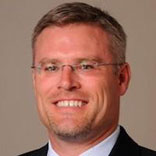
Dr. Brazel is considered a professional skeptic, which, in the accounting field, is a good thing. He is a distinguished professor of accounting and faculty scholar at the Poole College of Management at North Carolina State University, where he specializes in judgment in decision-making in auditing, auditing methods, and improving methods that auditors or others can use to detect fraud.
The theory of skepticism describes having a level of suspicion when “red flags” are first noticed. Sometimes auditors, controllers, financial personnel, and even investors may not know what to do or when to take action if something has not yet risen to the level of illegality. Dr. Brazel also is a proponent of cooperation, including encouraging IT auditors and financial statement auditors to compare notes. He has written a variety of publications about fraud risk and different forms of auditing and received a variety of grants in fraud prevention topics and been involved as an expert witness in fraud cases. Brazel developed a web-based fraud risk assessment tool used by the Financial Industry Regulatory Authority.
Dr. Brazel has a bachelor's degree in accounting and economics from Muhlenberg College, a master's of business administration (MBA) with a concentration in accounting from Drexel University, and a doctorate in business administration, accounting, and quantitative methods from the same school.
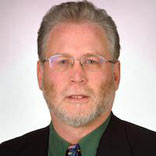
Dr. Bushman earned his Certified Public Accountant (CPA) title in 1975 and has since then been working in forensic accounting and education communities. He is currently a distinguished professor of forensic accounting and area chair of accounting at UNC’s Kenan-Flagler Business School.
His research has focused on a variety of financial topics, including corporate governance and bank regulation. This can include discussing how institutional policies and activities at private lenders can be influenced by the media, and the risk factors and controls faced by bank CEOs and banking competitors. Dr. Bushman’s research has also focused on the pros and cons of regulating corporate reporting. He has co-written dozens of publications and spoken about forensic accounting topics around the world.
Dr. Bushman received his bachelor's of business administration in accounting from Ohio University and his doctorate in accounting from the University of Minnesota.
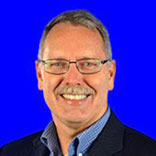
Before entering education, Dr. Crain was a CPA for more than 30 years, along with earning other distinctions such as Certified Fraud Examiner. He now directs the school’s Center for Forensic Accounting and teaches accounting courses. His areas of specialty include forensic accounting, business valuations and estimating economic damages. He has testified in court in all three areas as an expert witness.
Dr. Crain has received multiple awards from the Association of International CPAs for sustained contributions and best article of the year. He has published articles on economic damages and lost profit damages and has been a regular presenter at industry events around the country, focusing on litigation and valuation.
Dr. Crain obtained a bachelor's degree and an MBA from Bellarmine University. He completed his doctorate in business administration and finance from the University of Manchester.
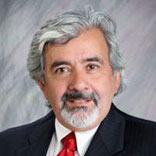
Ruben Davila is both a CPA and an attorney. He also teaches accounting at USC. He is currently a clinical professor of accounting, faculty director of the Food Industry Management program, and a diversity liaison at the school.
Mr. Davila is also a consultant, forensic accountant, and volunteer with the consumer division for the Los Angeles Center for Law and Justice. He has held various leadership roles with the Association of International Certified Professional Accountants and the National Association of State Boards of Accountancy. He has served as a litigation consultant and an expert witness in a variety of business litigation cases related to fraud, embezzlement, and contractual damage. Before teaching, he worked as a senior accountant at an accounting firm, where he was involved in audits and business reviews. During his legal training, he completed an externship with the Los Angeles District Attorney’s primary fraud unit and criminal courts division.
Davila has a bachelor's degree in accounting from Loyola Marymount University, an MBA from the University of Southern California, and a Juris Doctor (JD) from Loyola Law School.
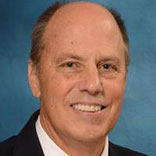
Dr. Green has held UMD’s Czarnecki Endowed Collegiate Professorship since 2008. He is the director of the college’s executive speaker series and a senior member of the school’s College of Business. He specializes in topics such as auditing, forensic accounting, and governmental and nonprofit accounting and has received multiple state and national awards for his teaching efforts.
One of Dr. Green's areas of research is in neural networks and the use of artificial intelligence programming to detect management fraud and identity theft. Some of his methods are used by credit card companies. He has given many seminars on this topic for the industry, shared fraud detection information with the public through local media, and written several teaching guides to better auditing. Dr. Green is currently researching risk probability theory, auditor liability issues, and the role of economic conditions in fraud. He is also a certified CPA and is active in organizations that focus on accounting teaching methods.
Dr. Green has a bachelor's degree and MBA from Central Michigan University and a doctorate from Kent State University.
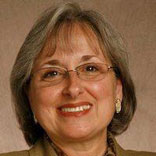
Mary Jo Kranacher is a celebrated and accomplished accounting professional. She was named “Educator of the Year” by the Association of Certified Fraud Examiners. She’s the author of the popular textbook Forensic Accounting and Fraud Examination.
Ms. Kranacher currently teaches accounting at York College in the College of New York system. She is a CPA, a certified fraud examiner, and certified financial forensics professional. She has conducted a variety of forensic investigations and often speaks on the topics of forensic accounting, fraud detection, and fraud deterrence. She previously worked on a project funded by the Department of Justice that resulted in new forensic accounting curriculum and has chronicled the changes in fraud theory.
Ms. Kranacher has a bachelor's degree from York College in accounting as well as an MBA from St. John's University with the same specialization.
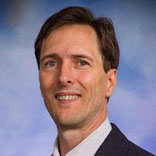
Some schools may have a few accounting faculty members with experience in criminal cases, but St. Xavier has an entire program that focuses on the topic. Dr. Parker is an assistant professor in the accounting and finance division of the Graham School of Management. The program focuses on academic research and outreach efforts to identify and reduce fraud in the public and private sector.
Dr. Parker has worked in a variety of legal and accounting roles in the U.S. and the United Kingdom. He previously worked as an attorney for Lockheed Martin and a planning operation representative in the company’s Justice and Law Enforcement Services department, which served the U.S. Department of Justice. He is the author of a variety of professional papers on topics such as bankruptcy abuse, insider trading, and the usefulness of reviewing bankruptcy petitions to discover internal and employee theft as a cause of the bankruptcy.
Dr. Parker obtained his bachelor's degree and MBA from Jacksonville State University, a JD from the Birmingham School of Law (1997), a master of laws (LLM) with a concentration in national security law from The Catholic University of America, and an LLM in human rights law from The University of Nottingham.
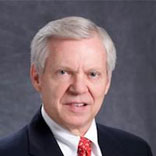
Dr. Sumners is the director and professor for LSU’s Center for Internal Auditing, as well as a professor for the school’s MBA and accounting programs. Notably, the Center for Internal Auditing was started in 1985 and is considered one of the top programs in the country for internal auditors and forensic accountants.
Dr. Sumners has been teaching there since 1980 and has been inducted into the International Internal Auditing Hall of Fame. The IIA also declared him “Educator of the Year” and presented him with the Lifetime Achievement Award for Accounting Education. He even has had an award named after him for the top student score in an annual manuscript competition. He has made more than 1,300 presentations internationally about proper auditing, quality assurance, training and proper governance, fraud prevention and detection, and general analytics.
Dr. Sumners has a doctorate in business administration with a focus on internal auditing from the University of Tennessee.
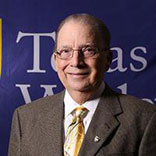
Dr. Tolleson is an accounting professor at Texas Wesleyan University and a member of the Association of Certified Fraud Examiners. One of his recent areas of interest is criminogenics, which analyzes how the new economy is changing what is considered acceptable behavior in the corporate world. This does not just apply to personal and business ethics, but also to general philosophies of governance.
He has also researched corruption, including possible links between cultural dimensions and investor rights. This is due to an increase in globalization which requires managers, business executives, government officials and international organizations to be better informed about a country’s potential for corruption. He also is an advocate of the importance of ethics and personal responsibility and makes sure his students consider how their actions can affect others.
Dr. Tolleson has a bachelor's degree in accounting from Mississippi College, an MBA in accounting from Augusta State University, and a doctorate in accounting from the University of North Texas.
The ten forensic accounting professionals listed below were chosen because of their expertise in the profession which includes work experience, advanced certification as well as the following additional criteria:

Farheen Gani
Farheen Gani writes about forensics schools across the United States, and has covered topics such as forensic chemistry and forensic science and biochemistry since 2018. She writes about healthcare, technology, education, and marketing. Her work has appeared on websites such as Tech in Asia and Foundr, as well as top SaaS blogs such as Zapier and InVision. You can connect with her on LinkedIn and Twitter (@FarheenGani).